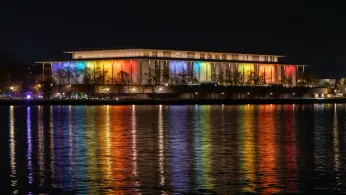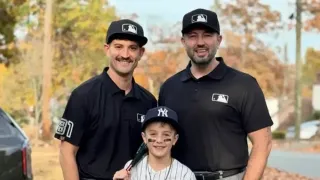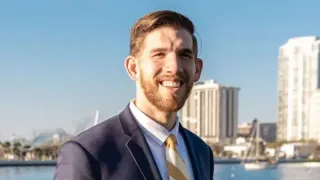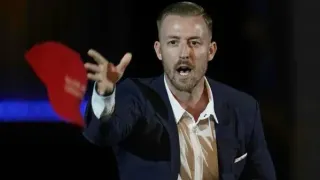
Nov 2
Curtain Call Crisis: Kennedy Center’s Queer Community Responds as Ticket Sales Dive Under Trump’s Anti-LGBTQ+ Reign
READ TIME: 3 MIN.
It’s a cold autumn in Washington, D.C., and the Kennedy Center—the city’s iconic home for performance, protest, and possibility—is feeling a chill far deeper than the changing weather. In the wake of President Trump’s self-appointment as chair of the Kennedy Center board, ticket sales have dropped to their lowest levels in years, with nearly half of seats sitting empty during recent shows—a stark contrast to the packed houses of seasons past.
For D.C.’s vibrant LGBTQ+ community, the Kennedy Center isn’t just a stage—it’s a sanctuary, a megaphone, and a living archive of queer creativity. The current crisis feels personal. “Depressed ticket sales not only cause a shortfall in revenue,” warns former Kennedy Center president Michael Kaiser, “they also bode unfavorably for future fundraising revenue”—a blow to every artist, stagehand, and audience member who sees themselves reflected in the Center’s lights.
Why are so many seats vacant? According to recent analyses, only 57 percent of tickets for a typical production have been sold since September, with some likely given away as complimentary passes—a dramatic drop from the 93 percent sold in fall 2024 and 80 percent in 2023, before Trump’s takeover.
The cause, say critics and community members, is clear: Trump’s deployment of the national guard has not only “hurt both tourism and nightlife,” but also sparked a wave of pledges to boycott the institution as long as anti-LGBTQ+ leadership remains in power.
For many queer Washingtonians, the boycott is a statement of resistance—a refusal to fund a cultural space undercut by policies and rhetoric that threaten LGBTQ+ rights, visibility, and safety. “Art is political, even when it claims not to be,” says one nonbinary patron, echoing a sentiment heard in drag bars, poetry readings, and Twitter threads across the city.
Yet the boycott is not without controversy. Francesca Zambello, director of the Washington National Opera, pleads for constructive dissent: “Find ways that are constructive to disagree rather than boycotting art and artists. So you’re not only killing the opera, the symphony, all the people who work at the Kennedy Center.” She emphasizes, “culture, opera, art is our calling. It’s a bridge to people…And by boycotting us, you are killing art.”
For LGBTQ+ performers and creators, the Kennedy Center’s troubles are more than a headline—they’re a threat to livelihood and legacy. The Center has long been a launching pad for queer voices, from drag cabarets and trans playwrights to musicals that subvert the status quo. The current climate risks silencing those voices just as the nation needs them most.
In June, the New York Times reported that “single-ticket sales were down roughly 50 percent in April and May, compared with the same period in 2024,” with revenue for theater down a staggering 82 percent and dance by 57 percent. This collapse isn’t just financial; it’s cultural. When queer artists lose their platforms, the stories that challenge, comfort, and inspire us risk being erased.
The Kennedy Center’s woes also reverberate through the city’s queer nightlife, a scene already battered by conservative crackdowns and pandemic aftershocks. With national guard deployments discouraging visitors and locals alike, spaces for LGBTQ+ gathering—on stage and off—have grown scarcer.
So, what’s next for D.C.’s queer community and the Kennedy Center? Some activists call for targeted support: buying tickets to LGBTQ+-led shows, amplifying queer artists, and organizing protest performances that make political dissent part of the art itself. Others urge ongoing boycotts, wielding the power of absence to send a message that anti-LGBTQ+ leadership won’t be funded—even at the cost of beloved institutions.
The debate is raw, emotional, and unresolved. Yet one thing is clear: the Kennedy Center’s crisis has become a flashpoint for the wider fight over queer visibility, inclusion, and creative freedom in America’s capital. Whether through boycott, bridge-building, or bold new art, the LGBTQ+ community is refusing to let the curtain fall without a fight.
As the lights flicker in the Kennedy Center’s empty halls, the spirit of queer resistance burns brighter than ever. The show must—and will—go on, even in the face of adversity. D.C.’s queer artists, audiences, and allies are writing a new script, one that insists: our stories, our stages, our lives matter.






